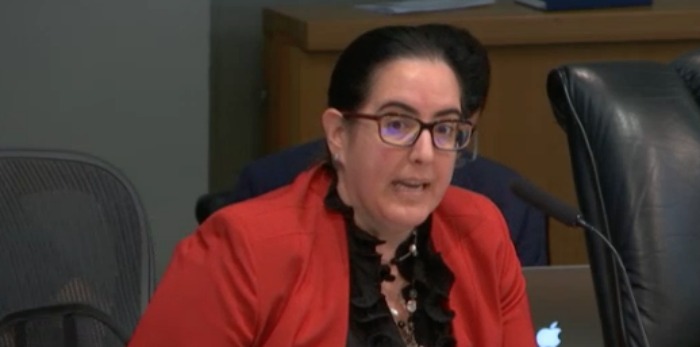Miami city attorneys have been working to stop or challenge the recall petition against Commissioner Joe Carollo for more than a month — before the first petition was signed — and even created a “cheat sheet” with their research and findings.
Actually, two “cheat sheets.” The original — which agreed with the recall attorneys on the timeline for submission of the petitions — and a “revised” version, which is a stricter view in order to thwart the process.
A chain of emails between City Attorney Victoria Mendez and three assistant city attorneys shows that they worked in collusion  and premeditated the rejection of the petitions submitted over the weekend and in hard copy on Monday by Take Back Our City, the political action committee behind the recall. The back and forth was at one point focused on the timeline — which ended up being the “why” the petitions were rejected.
and premeditated the rejection of the petitions submitted over the weekend and in hard copy on Monday by Take Back Our City, the political action committee behind the recall. The back and forth was at one point focused on the timeline — which ended up being the “why” the petitions were rejected.
Stay with me folks, ’cause we should be using flow charts.
On Jan. 29, two weeks after news of a recall was posted on this very space — and two days before the first recall petition was signed — Assistant City Attorney Kerri McNulty sent an email to Mendez at 6:36 p.m.: “Attached please find some initial responses to the questions you sent,” she tells her.
Read related: Joe Carollo recall lawyers win first round in court; city’s turn to respond
The questions that make up the “cheat sheet” were all about the recall — what constitutes a recall committee and did it have to be created before collecting signatures and did they have to file campaign finance reports and if recalls can be declared unconstitutional and, and, and. Mendez was obsessed with recalls as far back as Jan. 29 at least:
“Can you keep on recalling? Or is there a limit on the amount of recalls?”
“When do you figure out who is on the committee? Only when the petition is submitted to the clerk?”
“Is it thirty days to turn in the signatures, inclusive, or is it the 31st day? If the last day falls on a weekend, when is the petition due?”
In that first email — one of 26 sent to Ladra after a public records request, but I am still waiting for another 2,800 or so documents that I requested and last week paid 50% of the “redacting” fee for — McNulty tells Mendez 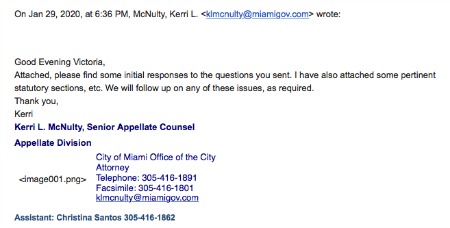 that Florida judicial rules for computing time show the 30-day period for the petitions begins “counting from the next day that is not a Saturday, Sunday or legal holiday.”
that Florida judicial rules for computing time show the 30-day period for the petitions begins “counting from the next day that is not a Saturday, Sunday or legal holiday.”
So, that means the first official day the recall began was Feb. 3, not Jan. 31, which falls on a Friday. Because the next day that is not a Saturday or Sunday or a legal holiday is Monday, Feb. 3.
The next thing McNulty explains is the deadline. “If the last day is a Saturday, Sunday or legal holiday… the period continues to run until the end of the next day that is not a Saturday, Sunday or legal holiday.” So, that means, if the first day to start was Feb. 3, that the deadline for the petitions was 30 days later on March 3. Her analysis sorta jives with that of the PAC attorneys. And if that is right — which anyone might argue is, since it was McNulty’s first interpretation — then the PAC submitted petitions early.
But that didn’t seem to work for Mendez. “Could we discuss computation of the time tomorrow? Thx,” she responded at 11:51 p.m. Jan. 29. This recall thing has been keeping her up at night.
The next day — as if Mendez had asked him for a second opinion — Assistant City Attorney George Wysong chimes in. His email is sent at 5:50 p.m. Jan. 30th.
“Hi Kerri, et al. I wanted to comment on the petitioner’s time frame for submitting the required signatures to the city clerk,” he wrote. “I believe that a strict reading of Section 100.36 Florida Statutes is in order.”
Ladra’s italics, not his. Because he isn’t supposed to look for the strictest reading possible to limit citizens. That’s voter suppression. That’s a violation of due process. That’s a violation of civil rights.
Read related: Joe Carollo recall heads to court after city takes all day to copy, reject petitions
“According to the statute, the petition must be filed with the City Clerk no later than 30 days after the date on which the first 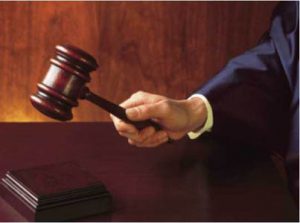 signature is obtained on the petition,” Wysong wrote. “We have been informed that the first signature on the petition was obtained today, January 30, 2020. Thirty (30) days from today is Saturday, February 29, 2020. The city clerk’s office maintains normal business hours of 8 a.m. to 5 p.m. Therefore, the petitioner must file the petition with the city clerk before the end of business on Friday, February 28, 2020, in order to meet the statutory deadline.”
signature is obtained on the petition,” Wysong wrote. “We have been informed that the first signature on the petition was obtained today, January 30, 2020. Thirty (30) days from today is Saturday, February 29, 2020. The city clerk’s office maintains normal business hours of 8 a.m. to 5 p.m. Therefore, the petitioner must file the petition with the city clerk before the end of business on Friday, February 28, 2020, in order to meet the statutory deadline.”
Friday? First the deadline is Saturday, then no it was Sunday and now it’s on Friday? The city really has no idea when the deadline is.
Wysong also said the legislature did not intend for the filing date to roll over to the next business day because the statute was silent on that. “The petitioner may argue that they will lose a day if they file the petition on Friday, February 28, 2020, however I believe the statute is pretty clear on this point. If the legislature had intended for the filing date to roll over to the next business day, they would have indicated thusly.”
At this time, the attorneys didn’t think the PAC would have any money to challenge any rejection of the petitions, as evidenced by Wysong’s next point. Italics, again, are Ladra’s.
“Until legislatively or judicially determined otherwise, I believe the petitioner must file the petition with the city clerk within 30 days, but no more than thirty days from the date on which the first signature is gathered,” Wysong wrote. “It is important to note the timing of the start of the petition period was entirely up to the chairperson and the committee that gathered the first signature. The fact that the petitioner’s poor planning may cost them a day of petition gathering is on them.”
Mendez loooooved this interpretation. This was something she could use. “Thank you, I read this 30-day time frame as Wysong did,” she wrote in an email sent at 9:25 p.m. that day, Jan. 30th. The next day, at 3:02 p.m., she sends an email to McNulty: “Kerri, if you agree, can you add this interpretation in your cheat sheet.”
She calls it a cheat sheet, for goodness sake! Because she knows what it is: cheating the voters!
Read related: Miami Commissioner Joe Carollo recall signatures submitted for round 1
It took McNulty three days — perhaps she was conflicted? — but she eventually conceded to her boss. 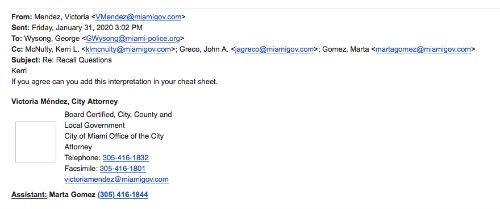 “Good afternoon Victoria,” she writes in an email sent at 2:47 p.m. Feb. 3. “I completely agree with George’s analysis. Updated cheat sheet attached.”
“Good afternoon Victoria,” she writes in an email sent at 2:47 p.m. Feb. 3. “I completely agree with George’s analysis. Updated cheat sheet attached.”
In the new “cheat sheet,” McNulty replaced her own earlier interpretation of the time computation — which, remember, would have made the deadline Tuesday, March 3 — with a cut and paste copy of Wysong’s interpretation. “The petitioner must file the petition with the City Clerk before the close of business on Friday, February 28,” she wrote, even citing Wysong’s argument that the statute is silent on the roll over of the date. Word for word.
The emails, which also included Assistant City Attorney John Greco, also show the group of legal eagles researched the 2011 Miami-Dade mayoral recall and sought opinions and case law to see if or how they could stop Carollo’s recall before it even started and — when the case law they found showed they could not — researched the following words: city, official, recall, delay and mandamus.
Delay is what they have done by rejecting the petitions and asking for 20 days to respond in court. They want to delay so they can 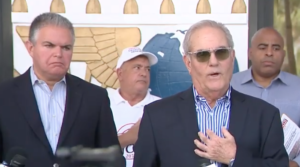 pass the anti recall ordinance on second reading March 26. By the date of the email, Ladra thinks they researched mandamus after they realized the activists who started the recall had gotten at least $100,000 from Joe Arriola — which means there would be money for a lawsuit, a writ of mandamus, to force the city to turn the petitions over to the county. It can mean nothing else.
pass the anti recall ordinance on second reading March 26. By the date of the email, Ladra thinks they researched mandamus after they realized the activists who started the recall had gotten at least $100,000 from Joe Arriola — which means there would be money for a lawsuit, a writ of mandamus, to force the city to turn the petitions over to the county. It can mean nothing else.
So, that means the city attorney never intended to submit the petitions to the county. They were preparing for a writ of mandamus, instead. They were right! That was filed by the PAC’s attorneys, JC Planas and David Winker just hours after the petitions were declared late. Their argument fo the deadline was the same as what McNulty wrote in her first email. But because they went by Jan. 31, that fell on Monday, March 2. They didn’t even realize that the deadline was on Tuesday, March 3, if the recall started on Feb. 3, as McNulty first indicated!
And then the assistant city attorneys have the nerve to tell the judge last week that they need 20 days to prepare their defense of the writ of mandamus? They’ve been researching that and preparing since Feb. 6!
The emails, which Ladra happily shared with the PAC attorneys, show that city attorneys started drafting the new recall ordinance — the one to limit citizens to one recall attempt per year per elected official — on Feb. 3. It’s possible that as they were conspiring to reject the Take Back Our City petitions — one way or another — they also conspired to make it permanent, for a year.
Read related: Three Amigos cry about ‘outsiders’ in recall, but take lots of outside money
They even researched whether the city could reimburse Carollo for legal fees if the recall was unsuccessful, which they found they could, but only when the recall is based “on actions performed in 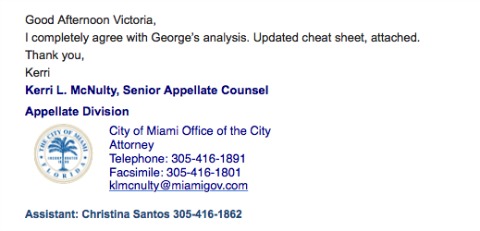 the course of his legislative duties while serving a municipal purpose.” And obviously, abuse of office is not in the course of his legislative duties.
the course of his legislative duties while serving a municipal purpose.” And obviously, abuse of office is not in the course of his legislative duties.
This proves that the city attorney’s office has been working on behalf of Carollo rather than on behalf of the city and its taxpayers. And, in fact, working for Carollo and against the 1,914 voters who signed petitions. The city attorney didn’t have anything to do with the recall or the recall process. The mechanism is there for citizens to hold their electeds accountable. The only city official who has anything to do with it is the city clerk, who, as a ministerial duty, has to receive and then “immediately” submit the petitions to the county’s Supervisor of Elections.
But these emails show the city attorneys planned to stop the clerk from doing just that.
City Clerk Todd Hannon, who doesn’t appear on any of the emails Ladra obtained, communicated to the Miami-Dade Elections Department at 9:20 a.m. Monday that he had received the petitions and would review them before delivering them. Seven hours later, he sent PAC attorney JC Planas an email that said the petitions were late and would not be turned in to the county.
Hannon also invited them to come pick them up — as if that trick would work. Planas knows that if the PAC picked up the petitions, they would then be invalid and they could not fight in court to have them turned in to the county.
But it also seems from this email chain that Mendez made that 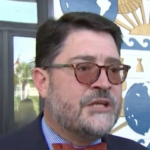 determination on the petition — a month ago — not the city clerk. A call to Mendez on Monday was not returned. She was busy preparing the response to the lawsuit that the judge said had to be in by 5 p.m.
determination on the petition — a month ago — not the city clerk. A call to Mendez on Monday was not returned. She was busy preparing the response to the lawsuit that the judge said had to be in by 5 p.m.
Planas and Winker were horrified when Ladra showed them the emails.
Said Winker: “Our democracy depends on open and fair elections and the city attorney is doing a disservice to the 1,900 plus voters whose voices they are trying to silence with this BS, as well as the residents of the city who rely on the city attorney’s office to represent all residents, not just Joe Carollo in his desperate effort to stay in power.”
Planas was harsher.
“Recalls are election matters as per the Florida statutes,” he said. “It is illegal and even criminal to use taxpayer funded attorneys to assist in defeating an electoral matter. The city attorney has now criminally given government resources to Joe Carollo in his recall election and Joe Carollo has illegally accepted resources to use in his election.”
That second part doesn’t surprise me. It’s part of a pattern. The whole recall is based on the fact, not opinion, that Joe Carollo uses city resources — money, staff, the code enforcement department — to benefit his pals and punish his political enemies.
This shows that even the city attorney’s office is doing the commissioner’s bidding. No wonder they are also known as the Law Offices of Carollo & Associates, LLP. Mendez and her assistants were working in bad faith from day one to stop the recall, to find it unconstitutional, to construct the strictest timeline, to defend a writ of mandamus, and even to get attorney’s fees paid.
The city attorney opted to protect an elected official from the 1,900 plus citizens that want to recall him.
So, that means she should be recalled next.

